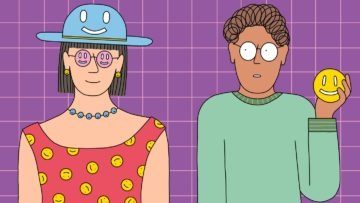Arthur C. Brooks in The Atlantic:
 On a scale of 0 to 10, I’d say my happiness ranks at about a 6. I’d guess my wife’s is at least a 9. I try not to envy her natural Spanish alegría, but sometimes it’s hard. Still, I’m glad to know I’m a 6, because, as a famous management maxim puts it, “You can’t manage what you don’t measure.” This is generally used in reference to business operations, but as a social scientist, I can assure you that it works for life operations as well. If you want to improve an aspect of your life, you need to be able to assess progress toward your goal—and that means measuring it. The goal of this column is to help you manage and improve your happiness. No surprise, then, that I make frequent reference to studies and surveys that measure happiness. A number of people have asked me whether quantitative happiness measures are really accurate and reliable—and it’s a reasonable question.
On a scale of 0 to 10, I’d say my happiness ranks at about a 6. I’d guess my wife’s is at least a 9. I try not to envy her natural Spanish alegría, but sometimes it’s hard. Still, I’m glad to know I’m a 6, because, as a famous management maxim puts it, “You can’t manage what you don’t measure.” This is generally used in reference to business operations, but as a social scientist, I can assure you that it works for life operations as well. If you want to improve an aspect of your life, you need to be able to assess progress toward your goal—and that means measuring it. The goal of this column is to help you manage and improve your happiness. No surprise, then, that I make frequent reference to studies and surveys that measure happiness. A number of people have asked me whether quantitative happiness measures are really accurate and reliable—and it’s a reasonable question.
…The most dangerous use of happiness self-tests is social comparison. Researchers have long found that social comparison is a killer of joy, but you hardly need a study to tell you that—just spend a few hours browsing Instagram and see how bad you feel about yourself. This is because you are comparing your happiness with your perception of others’ happiness, as depicted in information of dubious accuracy. Nothing good comes of this. Shakespeare sums up the happiness-comparison problem in his Sonnet 29. The bard, after cursing what he calls his “outcast state,” compares himself to “one more rich in hope, / Featured like him, like him with friends possessed, / Desiring this man’s art and that man’s scope.” The product of this envy? “With what I most enjoy contented least.” In sum: If you compare your happiness to others’—and covet theirs—you will lose the happiness you do have.
More here.
